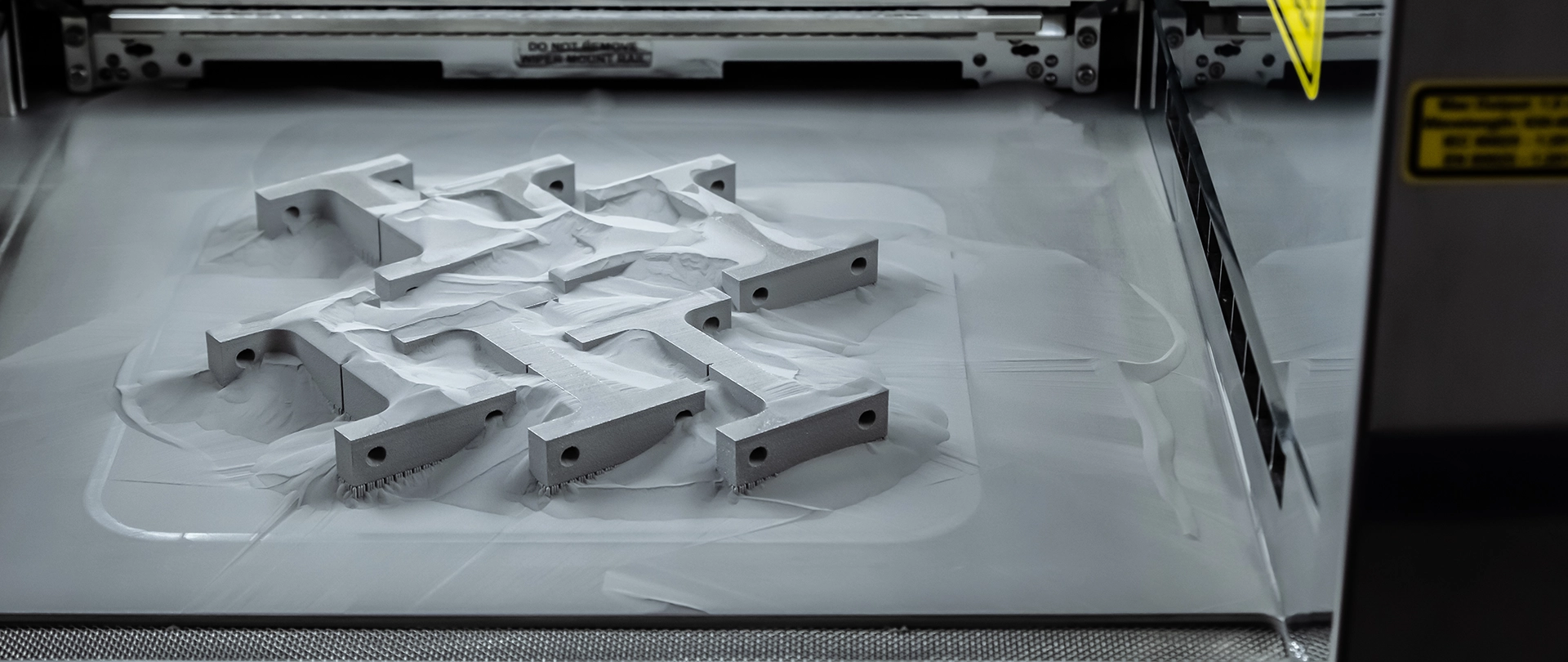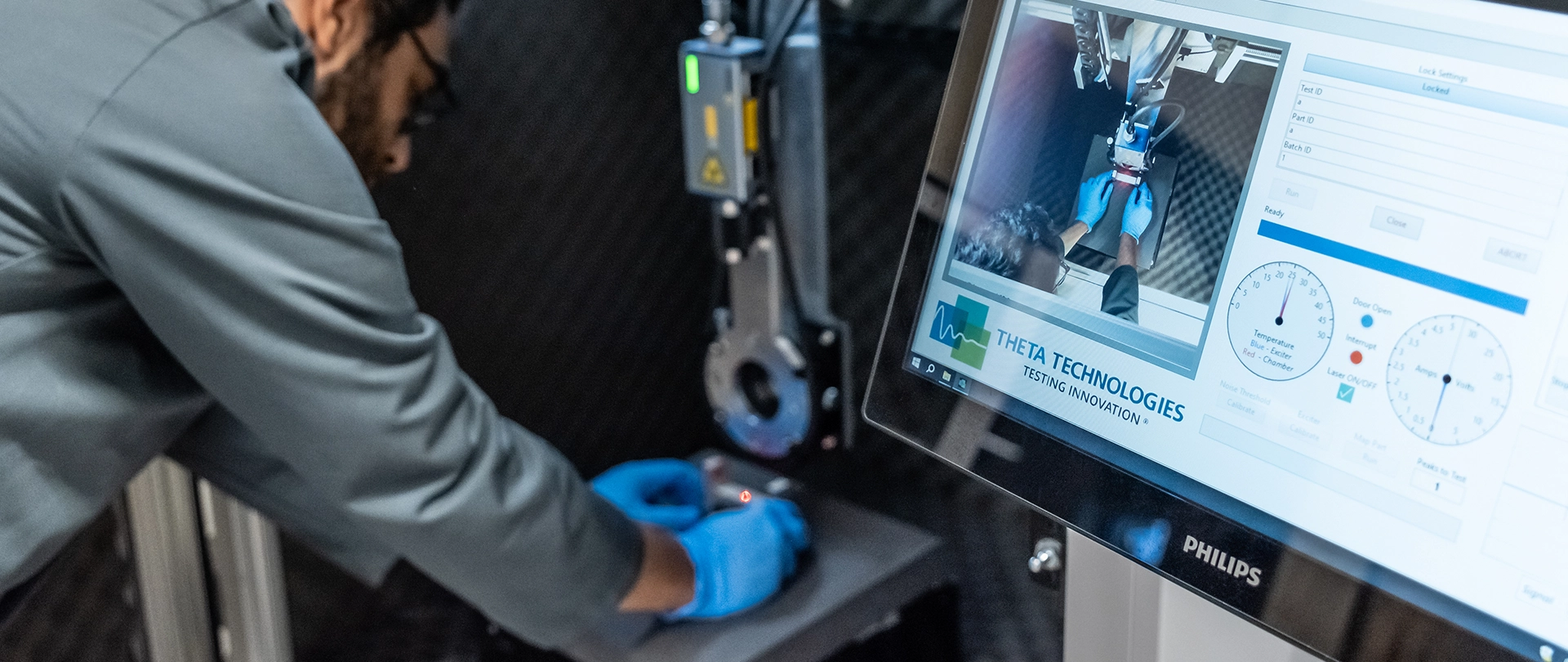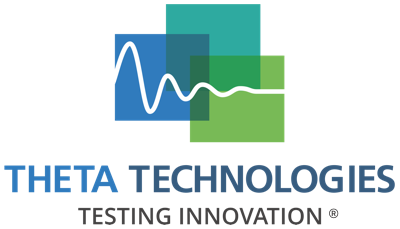Non-destructive testing for additive manufacturing
Eliminate the risk of adding value to flawed parts during post-processing with nonlinear resonance NDT.
Non-destructive testing for additive manufacturing
Aerospace, Defence, Motorsport, Automotive, Oil and Gas, Medical, Power Generation, Renewables, Research Institutes.

Nonlinear resonance NDT: Streamlining AM post-processing
Theta Technologies’ RD1-TT nonlinear resonance NDT technology, which garnered industry acclaim at the TCT awards in June 2023 is becoming well-known for its portfolio of quality control benefits, particularly within additive manufacturing. This game-changing non-destructive testing solution has been recognised for offering indisputable advantages to additive manufacturers prior to, and during the timely and costly post-processing steps of AM production.
Why use NDT for quality control and inspection?
Non-destructive testing is a methodical approach used to evaluate materials and components without causing damage or altering their integrity. During the post-processing phase, NDT becomes particularly important as it ensures that the final product meets the required standards and specifications. Although historically manufacturers have employed multiple quality control techniques throughout this process, NDT in particular provides valuable insights into the condition of materials and components, allowing for timely interventions and corrective actions when flaws or defects are detected. This comprehensive evaluation enhances overall quality control and all but guarantees the safety and reliability of the finished products.
Post-processing stands as a pivotal stage unique to additive manufacturing and is notorious for its propensity to introduce common flaws or defects that can compromise the performance and safety of materials and components. NDT serves as an indispensable tool for detecting and assessing these imperfections. Those well-versed in the post-processing realm are well aware of its cost-intensive nature, with labour, equipment and tooling, materials, and waste all contributing significantly. However, non-destructive testing, when harnessed effectively, presents an opportunity to mitigate these costs. Enter RD1-TT.

The benefits of nonlinear resonance NDT
Theta Technologies’ nonlinear resonance NDT solution provides distinct quality control benefits for additive manufacturers, among which one stands out as particularly advantageous: its ability to perform a whole-body non-destructive test of an additive manufacturing component immediately after the printing process.
RD1-TT possesses a unique capability to assess a component’s integrity immediately following the build, accounting for the inherent surface roughness associated with 3D printing, and while the component remains on the build plate. This game-changing feature, facilitating the swift identification of defective components, holds unparalleled potential for process optimization and cost reduction, as manufacturers can immediately remove faulty parts from production prior to adding unnecessary value. If that wasn’t enough, it is also worth mentioning that a non-destructive test employing RD1-TT can be completed in under a minute.
Understand your post-processing workflow
Of course, printing is just the beginning of a rigorous manufacturing process, with subsequent stages posing their own set of challenges for each 3D-printed component. RD1-TT’s advantages are not confined solely to the initial phase. The simplicity, speed, and ease of use of RD1-TT enable its deployment at multiple junctures within this demanding workflow, many of which have the potential to introduce defects into an otherwise viable component. Support removal and de-powdering, for instance, exerts significant stress on 3D-printed components, particularly those boasting thin walls or complex geometries. This presents another opportune application for RD1-TT. Conducting a 60-second test after each individual post-processing step not only ensures the continued flawlessness of the components but also identifies the stages of the process that may be contributing to the defects.
It’s no secret that non-destructive testing during post-processing constitutes a fundamental facet of quality control, but existing techniques have proved ineffective at solving some of the unique challenges faced by additive manufacturers, particularly those looking to adopt the technology for mass manufacture. By incorporating Theta Technologies’ revolutionary non-destructive testing solution, RD1-TT into their workflow, manufacturers can identify flaws and defects in materials and components at the earliest possible opportunity and significantly faster than traditional NDT methods, allowing for immediate interventions and all but eradicating the possibility of adding unnecessary value to defective parts.
Deploying RD1-TT both before and during this pivotal production phase not only enables companies to achieve significant cost reductions, but also assists in upholding their commitment to delivering safe, reliable, and high-quality products. Undoubtedly, no other product surpasses RD1-TT in its ability to facilitate these objectives for additive manufacturers.
Are you ready to revolutionise your post-processing workflow with the unparalleled capabilities of RD1-TT? Take the first step towards enhancing the quality control of your additive manufacturing process and don’t miss out on the transformative benefits that RD1-TT offers.
Reach out to our dedicated team and discover how RD1-TT can empower your business. Whether you’re looking to identify flaws and defects with unmatched speed and precision, optimise your production process, or simply reduce costs, RD1-TT is the quality control solution you’ve been waiting for.
Contact us today and let us demonstrate how RD1-TT can transform your manufacturing process.

Talk to
Our Team of
Technical Specialists
Connect with our team of technical experts today and explore how RD1-TT can help revolutionise your additive manufacturing processes.
Theta Technologies Limited

Address
Theta Technologies Limited
3 Babbage Way
Exeter Science Park
Clyst Honiton
Exeter
EX5 2FN
United Kingdom
Terms & Conditions Privacy & Cookie Policy Anti-Slavery Policy © Theta Technologies. 2023
